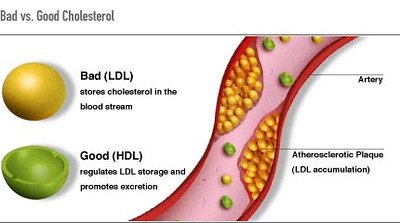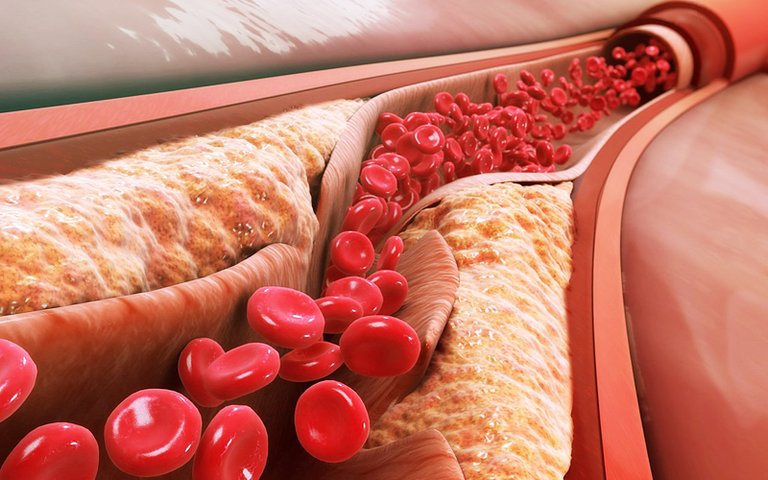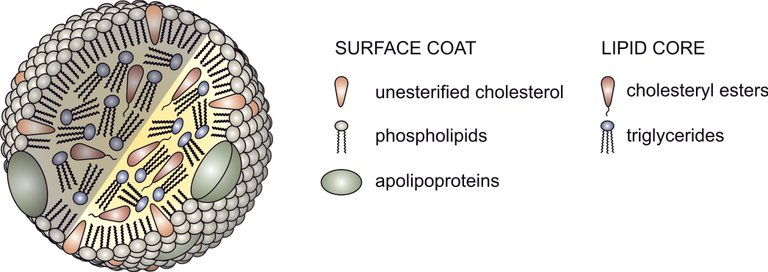Lipoprotein(a); The Cholesterol That is Dangerous HDL and LDL
Everything about life would have been easy if erverything was just black or white and no gray areas but as you would expect, everything about life especially when it has to do with your biology and your health tends not be Black or White rather they have those gray areas. It is in this light that you might have heard the name Cholesterol and I guessed right, you have been told there is a bad cholesterol that can send a person to their early graves when it clog their arteries leading to heart attack, and there is the good cholesterol that resolves that issue.
Drum roll!!! Actually, there are three types, the good one, you know about, the bad one yo learned about because in most medical situation, we are usually thought about the negative effect of something, and finally, there is the third type of cholesterol that people do not often talk about and it is not in the middle rather it is bad as well because about 20% of people have this cholesterol which has led to the death of a lot of people.

https://www.flickr.com
Quickly, cholesterol generally isn't bad for you and I and this is why the body makes it as it helps with the making of cell membranes and hormones. Cholesterol are fat molecules that are attached to lipoprotein and travels through the blood thereby helping to take fat to different parts of the body where it is needed. In actual sense, the body needs the cholesterol and it travels with protein and they exist in forms like Low Density Lipoprotein (LDL) which has more cholesterol per protein, High Density Lipoprotein (HDL) which has less cholesterol per protein, and these makes the two first type of cholesterol I mention have opposing effect on the body.
When there is excessive Low Density Lipoprotein (LDL) floating around, they tend not to flow through the blood vessels rather they stick to the walls of the vessels building up to form plaque. You know how that yellowish substance build up on your teeth, actually that is not the plaque I am talking about, but LDL builds up in the same way. As this plaque builds up on the walls of the arteries, the passage for blood flow becomes smaller and this can lead to a stroke or a heart attack. This is why Low Density Lipoprotein (LDL) is regarded as bad cholesterol.

https://www.freemalaysiatoday.com
On that note, let's talk a little about High Density Lipoprotein or HDL. If LDL is doing its duty to ensure there is plaque everywhere, HDLdoes the lords job by removing the LDL and transporting them to be liver to be dealt with and this is why the science community has gave it the Oscar awards for doing a good job and it has been getting this honor since 1977 when it was first discovered that more HDL in the body leads to less heart diseases but like I said, these things aren't black or white.
A recent studies in 2017 found that in other to enjoy the benefit of HDL in the body, a person must have 60 milligrams per deciliter in the blood, and anything more than that will lead to a higher risk of having a heart disease. Also another study in the United States showed that having less than the 60 milligrams per deciliter is associated with increased risk of heart disease in some people. We see that there are some guidelines to enjoying the benefit of HDL.
When you go to the hospital and the doctor is concerned about your cholesterol level, I can tell you for free that they are not worried about your HDL or your LDL in general, rather they are concerned about a certain type of Low Density Lipoprotein known as Lipoprotein (a) or LP(a). Scientists do not still know what LP(a)s are doing in the body but scientists have learned that having too much LP(a) is associated with a higher risk of heart diseases than the regular LDL that we know even when scientists say that LP(a) carry less cholesterol than other types of LDLs.
The negative effect of Lipoprotein (a) or LP(a) is attributed to its size as it is very small, thereby allowing it access to smaller blood vessels where it build up plaques blocking blood clots and they are able to do this because of their similarity to a molecule that helps break down clots in the body. The protein in this cholesterol known as Apolipoprotein is attributed to inflammation which can cause the plaque on the wall to be pulled out and blocking the arteries generally which can lead to a stroke or a heart attack.
Currently scientists are looking to solve LP(a) problems as there isn't a definite solution yet to it. Scientists are in phase 3 clinical trial for the use of RNA interferance drugs to reduce the amount of LP(a) in the body. It works by adding a genetic code that breaks down the protein code for LP(a) causing the body to make fewer particles of the cholesterol.
Read More
- https://www.betterhealth.vic.gov.au/health/conditionsandtreatments/cholesterol
- https://www.victorchang.edu.au/heart-disease/atherosclerosis
- https://pmc.ncbi.nlm.nih.gov/articles/PMC2464766/
- https://www.ncbi.nlm.nih.gov/books/NBK305896
- https://www.mayoclinic.org/diseases-conditions/high-blood-cholesterol
- https://my.clevelandclinic.org/health/articles/24391-ldl-cholesterol
- https://academic.oup.com/clinchem/article/67/1/154/6000718
- https://pmc.ncbi.nlm.nih.gov/articles/PMC10095203
- https://www.atherosclerosis-journal.com/article/S0021-9150
- https://www.nature.com/articles/s41569-018-0153-2#Abs3
- https://www.atherosclerosis-journal.com/article/S0021-9150
- https://pmc.ncbi.nlm.nih.gov/articles/PMC8953457/

Sending Love and Ecency Curation Vote!
 Follow Eceny's curation trail to earn better APR on your own HP. : )
Follow Eceny's curation trail to earn better APR on your own HP. : )
Thanks for your contribution to the STEMsocial community. Feel free to join us on discord to get to know the rest of us!
Please consider delegating to the @stemsocial account (85% of the curation rewards are returned).
Thanks for including @stemsocial as a beneficiary, which gives you stronger support.